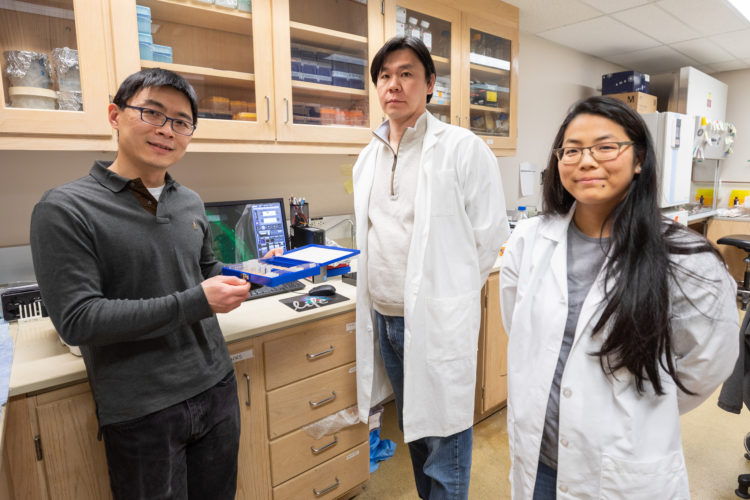The UW Medicinal Chemist studied neural chemistry and biology to understand the underlying mechanism that cause birth defects, behavioral problems, and autism

You probably know about good and bad cholesterol as it relates to your heart—but did you know that your brain needs cholesterol too? The brain’s cholesterol is essential to fetal development—a lack of which can lead to birth defects and conditions like Smith-Lemli-Opitz syndrome (SLOS), a disorder caused by mutations in the last step of cholesterol biosynthesis, DHCR7.
SLOS has a high correlation with autism: over 70% of children diagnosed with SLOS also display an autism spectrum disorder. It also tends to be underdiagnosed due to fetal lethality or takes years to be diagnosed as some mild cases show up as behavioral problems, not physical defects.
But getting more cholesterol to the brain isn’t as simple as taking a supplement. The brain makes its own cholesterol and cholesterol in the peripheral tissues or blood does not cross the blood-brain barrier. Any therapies for SLOS must be able to pass through the blood-brain barrier to be effective.
Assistant Professor Libin Xu and his team want to understand the molecular mechanisms underlying SLOS so they can test treatments that can get to the brain. Understanding the mechanisms behind SLOS could also lead to treatments for autism due to the strong correlation between SLOS and autism.
“The marriage of chemistry and biology gives me a unique way to look at molecules and the impact small molecules have in disease pathology.”—Libin Xu, Assistant Professor of Medicinal Chemistry
There are two causes the team are looking at: genetic mutations in DHCR7 that result in a build up of a reactive cholesterol precursor, 7DHC, that negatively affects brain development, as well as inhibition of the same enzyme by environmental molecules or drugs, such as benzalkonium chloride, a common ingredient in hand wipes and disinfectants like Clorox and Lysol, and some antipsychotic and antidepressant drugs—such as Abilify and Haldol.
Simply put, the team is exploring how these common environmental compounds and prescription medications cause the same biochemical defects observed in SLOS, aiming to minimize damages of such exposure on embryonic and brain development and develop treatments.
The team is using a combination of mass spectrometry and mouse models to study the disease and what happens when the reactive cholesterol precursor, 7DHC, builds up. They want to find a way to inhibit the formation of toxic metabolites of 7DHC or inhibit their downstream detrimental effects using small molecules. Libin sees some promise in identifying combination therapies that mitigate the risk of SLOS-like symptoms in the case of mothers taking antidepressants or antipsychotics.
Women who are expecting may want to speak with their doctor if they are taking such drugs or using products containing benzalkonium chloride during pregnancy and lactation. However, there are adverse side effects of untreated depression, including low birthweight and preterm labor, which may outweigh the risk to the fetus’ development, so stopping medication without a provider’s guidance is not recommended.
This five-year National Institutes of Health R01 grant (R01HD092659) was funded in 2017 for $1.3M.
To study with researchers like Dr. Xu, click for more information about our Graduate Programs in Medicinal Chemistry.